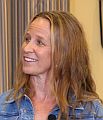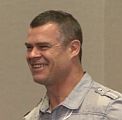DOWNLOAD A COPY OF: “Living Water Smart in British Columbia: Balancing Act – H2O and Healthy Streams” – released by the Partnership for Water Sustainability in April 2024

“Students are always looking for projects where they can make a difference. The idea was how can we bring more science into development to make a difference. I have always looked for people who are within the system but want to make a change. They are the leaders. And if we can contribute some science to these leaders, they can make the difference, not us. All we do is provide the data. And so, connecting with Richard Boase in the 1990s was really fundamental because he is on the inside,” stated UBC’s Dr. Hans Schreier.










